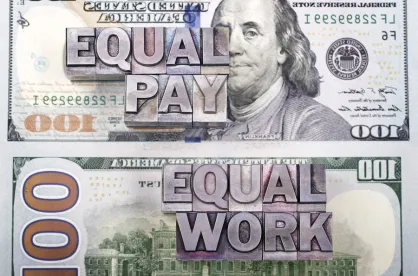On January 10, 2023, Denver Mayor Michael Hancock approved an ordinance (File No. 22-1614) passed by the Denver City Council that will provide new avenues for workers in the City and County of Denver to pursue claims for wage theft.
Filing Complaints With the Auditor
Now, in addition to filing a complaint under the Colorado Wage Act (CWA) with the Colorado Division of Labor Standards and Statistics, any person—whether that person is a Denver worker or not—may file a complaint regarding failure to pay workers in Denver with the city auditor, who has authority to investigate an employer’s pay practices and issue steep penalties for noncompliance. However, unlike the CWA, the auditor may enforce “up the chain” by holding an entity that has directly or indirectly contracted for labor and is the beneficiary of such labor liable for any violation of the ordinance. This may include general contractors, clients of staffing agencies, and labor brokers, even if they are not in a direct contractual relationship with the worker. An individual may file a complaint within three years of an alleged violation.
Where there is a “reasonable basis to believe that a violation occurred,” the auditor may also initiate an investigation without a complaint from a worker. The standard for such “reasonable basis” is remarkably low, and it may be satisfied not only by information that a particular employer has failed to pay required wages, but also by a pattern and practice of credible complaints in a particular industry, regardless of whether there is any indication a specific employer within such industry has violated the law.
Recordkeeping and Notice Requirements
The ordinance also places an affirmative obligation on employers to provide an auditor-approved notice to all employees in both English and Spanish. The notice must state the Denver minimum wage, that wage theft is a crime, and that workers may submit complaints related to wage theft to the auditor.
Consistent with employers’ recordkeeping obligations already in place under the CWA, employers must keep payroll records for at least three years. Upon request by the auditor, an employer must produce the payroll records with a sworn statement attesting to the truth and accuracy of the records, the fact that payments were made to workers as reflected in the payroll records, and the fact that all workers have been paid at least the Denver minimum wage or the wage promised (whichever is higher) for all work or, alternately, why the requirement was not met in specific instances. Failure to furnish the auditor with the requested payroll records may result in a fine of up to $1,000.
Anti-Retaliation
Employers may not retaliate against workers for exercising rights under the ordinance, such as filing a lawsuit or a complaint with the auditor, participating in an investigation by the auditor, or inquiring about rights protected under the ordinance. Where a worker suffers an adverse action within ninety days of a protected activity, retaliation will be presumed. An employer may rebut a presumption of retaliation with clear and convincing evidence that the adverse action was taken for legitimate, legal reasons.
Penalties
The ordinance grants the auditor wide discretion to order remedies and penalties for noncompliance. If an employer fails to pay wages owed within fourteen days of receiving notice of such a failure, the auditor may assess the following penalties:
-
wages owed;
-
the amount that accrued after the filing of the complaint;
-
12 percent interest per year on the unpaid wages since they were first due;
-
treble damages;
-
reinstatement; and
-
up to $25,000 in penalties for each worker not paid full wages for work.
If an employer fails to pay the minimum wage, the auditor may either assess the penalties above or the following penalties based on the employer’s history of noncompliance:
-
First violation within a three-year period: $50 per worker per day the owed wages are not paid
-
Second and third violations within a three-year period: $1,000 to $2,500, plus $10 to $75 per day for each worker not paid
-
Four or more violations within a three-year period: $2,500 to $5,000, plus $50 to $100 per day for each worker not paid
The auditor may also issue a fine of $5,000 for each incident of retaliation, a fine of $1,000 for furnishing false information to the auditor, and a fine $1,000 for any other violation.
Private Right of Action
The ordinance also creates a private right of action for aggrieved workers and other persons suffering harm from an employer’s violation of the law. Such individuals may choose to forgo filing a complaint with the auditor and instead may file suit in court within three years of the date of the alleged ordinance violation. In addition to the wages unlawfully withheld, available damages include 12 percent interest per annum on unpaid wages from the date such wages were first due, a $100 penalty per worker per day for each day that a violation occurred or continued, liquidated damages in an amount up to three times the amount of unpaid wages, injunctive relief such as reinstatement, and attorneys’ fees and costs. Further, the city auditor remains empowered to investigate noncompliance and assess penalties even if an individual brings a private right of action.





 />i
/>i
